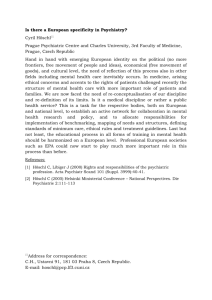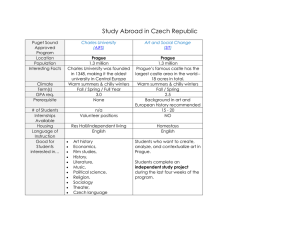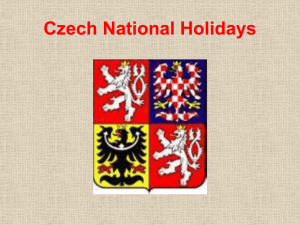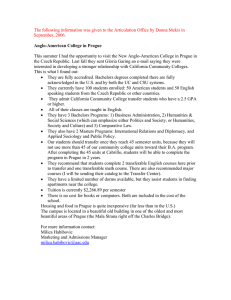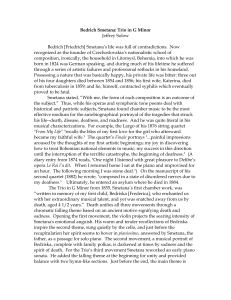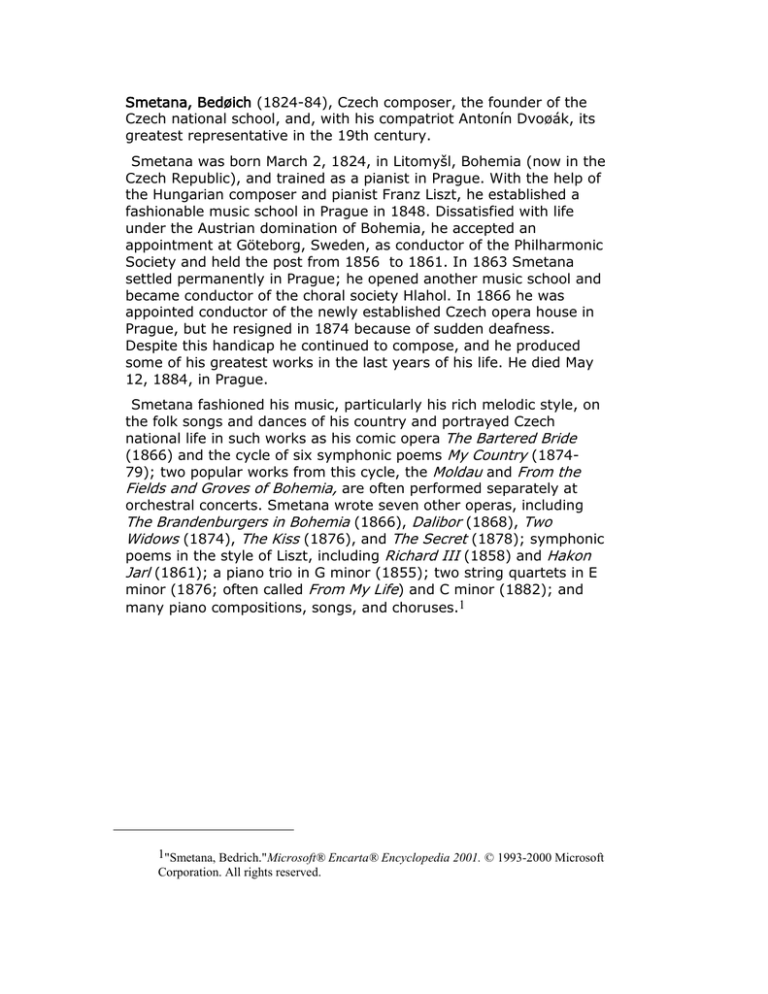
Smetana, Bedøich (1824-84), Czech composer, the founder of the
Czech national school, and, with his compatriot Antonín Dvoøák, its
greatest representative in the 19th century.
Smetana was born March 2, 1824, in Litomyšl, Bohemia (now in the
Czech Republic), and trained as a pianist in Prague. With the help of
the Hungarian composer and pianist Franz Liszt, he established a
fashionable music school in Prague in 1848. Dissatisfied with life
under the Austrian domination of Bohemia, he accepted an
appointment at Göteborg, Sweden, as conductor of the Philharmonic
Society and held the post from 1856 to 1861. In 1863 Smetana
settled permanently in Prague; he opened another music school and
became conductor of the choral society Hlahol. In 1866 he was
appointed conductor of the newly established Czech opera house in
Prague, but he resigned in 1874 because of sudden deafness.
Despite this handicap he continued to compose, and he produced
some of his greatest works in the last years of his life. He died May
12, 1884, in Prague.
Smetana fashioned his music, particularly his rich melodic style, on
the folk songs and dances of his country and portrayed Czech
national life in such works as his comic opera The Bartered Bride
(1866) and the cycle of six symphonic poems My Country (187479); two popular works from this cycle, the Moldau and From the
Fields and Groves of Bohemia, are often performed separately at
orchestral concerts. Smetana wrote seven other operas, including
The Brandenburgers in Bohemia (1866), Dalibor (1868), Two
Widows (1874), The Kiss (1876), and The Secret (1878); symphonic
poems in the style of Liszt, including Richard III (1858) and Hakon
Jarl (1861); a piano trio in G minor (1855); two string quartets in E
minor (1876; often called From My Life) and C minor (1882); and
many piano compositions, songs, and choruses.1
1"Smetana, Bedrich."Microsoft® Encarta® Encyclopedia 2001. © 1993-2000 Microsoft
Corporation. All rights reserved.

